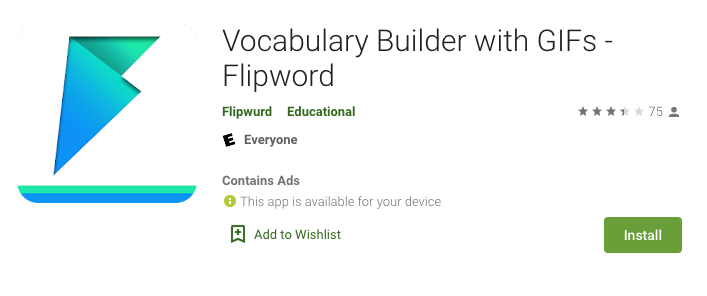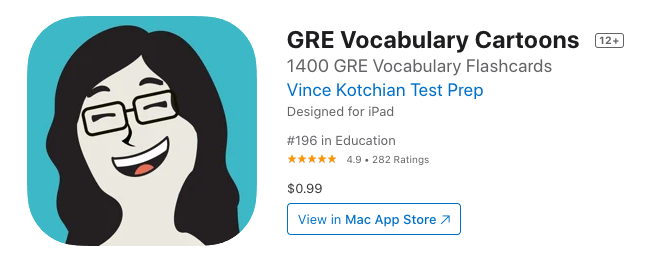-
Posts
9,471 -
Joined
-
Last visited
-
Days Won
38
Erin last won the day on January 28
Erin had the most liked content!
Recent Profile Visitors
The recent visitors block is disabled and is not being shown to other users.
Erin's Achievements
-
Yes, it's very quiet. Especially compared to the heyday of the 2000s! I would like to make a run at reviving things over here; at this stage of my career, it'll be a labor of love. Well, it's actually always been that. But I'd really like to put in a few features to see where things go.
-
Erin started following Identifying Independent and Dependent Clauses
-

Identifying Independent and Dependent Clauses
Erin replied to imslogic's topic in GMAT Sentence Correction
These are great questions. Seriously. There are a lot of different ways to look at your questions; you are asking advanced questions that show a good understanding already of language and how it functions. First off, there are two sets of names for independent vs dependent clauses; a lot of teachers prefer main and subordinate, respectively. I will use those terms while I'm explaining. The first point to wrap your head around is that a clause is a subject and a verb together. If you can understand that, awesome. I had a teacher once who said a clause is a sentence. There's more to it than that, but that's the basic idea--a subject and a verb. Personally, I don't think about this 'complete thought' nonsense because who defines a complete thought? (Is not Yikes! a complete thought?) Next point: main vs subordinate. 'main' just means that that sentence carries more weight in the sentence; the subordinate clause is less important. Here is a summary I use in class: All clauses have at least a subject and verb. Main clause = independent clause Subordinate clause = dependent clause Note the perhaps-subtle differences in these sentences: (You may wish to say them aloud to hear the difference as well.) - I’m tired, but I’ll help you. (Both clauses are main; each clause arguably has the same weight.) - Even though I’m tired, I’ll help you. (The emphasis here is on 'I'll help you' because that's the main clause; this means the speaker sounds kinder with their offer of help. The 'tired' part is subordinated, so it has less weight in the sentence.) - Even though I’ll help you, I’m tired. (In this one, the speaker emphasizes the fact that they're tired because that information appears in the main clause; in this case, the speaker seems less willing to help. The information about the offer of help is subordinated, so it's less important.) Third point: It's important to know that subordinate clauses can be grouped by function--noun clause, adjective clause (also called a relative clause), and adverb clause. This basically means that each clause can function as a noun, adjective, or adverb, respectively. Quick examples: 1. Noun clause: [That you are hungry] is apparent. 2. Adjective clause: I saw the movie [that you recommended]. 3. Adverb clause: I will help you [when I get home]. A quick trick is to plug in a noun, adjective, or adverb into the sentences to see how each functions grammatically; for example: 1. Your hunger is apparent. 2. I saw the recommended movie. 3. I will help you later. These sentences sound different from the versions with clauses instead of phrases, but they help show how the clauses function in the sentences. Does this help shed some light? I could write more on the matter, but I'm trying to keep it as concise as I can! -
Welcome to the 2023 Ph.D. in Business concentration sweat thread! This is a thread for applicants (hopefully!) starting their PhD program in 2023! Use this is vent, discuss any frustrations, or random musings that you would like others to weigh in on! Best of luck to this year's applicants! For those of you just starting to browse this website, check out the Welcome to the Forum thread for information that has been helpful in the past.
-
Please let us know it's going, and hang in there!
-
That's quite the ordeal. Sounds like a horrible experience. ETS might allow you a retake, but I don't think they'll give you a partial refund. For what it's worth, your English in this post is quite advanced. Hopefully that will come through in your scores. Good luck!
-
The present perfect verb tense is one of the most used verb tenses in English, but also sometimes the most confusing. In its basic form, it is used to talk about actions that have already been completed with some sort of connection with the present. For example, "I have eaten breakfast" can be used to say that you have finished eating breakfast, but you finished recently. The present perfect tense is made up of two parts: the present tense of the verb "to have" (I have, you have, she/he/it has, etc.) and the past participle of the main verb (eaten, gone, seen, etc.). Here are some more examples of the present perfect verb tense: I have finished my homework. You have cleaned your room. She has washed the car. The present perfect verb tense is often used with time expressions such as already, just, and yet. I have already eaten breakfast. You have just cleaned your room. She has not washed the car yet. The present perfect verb tense can also be used to talk about actions that happened in the past but are still relevant today. For example, "I have seen that movie three times." This basically means that you have seen the movie three times in the past, but it's still possible that you will see it more often.
-
I get this question from students regularly. What usually happens is a student gets a letter asking them to join the National Society of High School Scholars (NSHSS). (But even if you don't get a letter, you can still join!) Some of them are really excited about being nominated, while others are rightfully more skeptical. The acronym sounds close to the National Honor Society (NHS), so maybe there's some confusion on the part of the student. So students wonder whether they should pay $75 for a lifetime membership at NSHHS. The National Society of High School Scholars is not a prestigious organization and will not help with college admissions. It sends out thousands of these letters every year, and fortunately for them, a high enough percentage of students join. According to their own web page, they accept anyone who meets any single one of the following criteria (retrieved 2022-07-26): 3.5 GPA or better 1280 SAT or 1150 PSAT or higher (about the 85 percentile) A 4 or better on any single AP exam 26 or higher on the ACT Combined IB test scores of 36 or higher IGCSE grade A or better In the top 10% of the class If you visit the BBB page for the NSHSS, you will find many (over 100 total) complaints like this: Many of the complainers state that they thought the invitation was from the NHS (National Honor Society) because they didn't read carefully. The good news is that NSHSS appears to refund fees to those who request it. So good on them for that. Importantly, the NSHSS is NOT a non-profit, even though their website is hosted on a .org domain. Anyone can get a .org, just so you know. It's the .edu, .gov, etc. domains that actually mean something. They are not registered as a 501(c)(3) non-profit; rather, they are a 'Domestic Profit Corporation' (according to Georgia's business registration website), just like most large companies you know. Bottom line--NSHSS will most certainly not help you get into college any more than being the leader of your Fortnite team for three years would. If anything, the readers might take a little pity on you for joining. But you're free to join if you want to and $75 seems worth it; there are some benefits listed, like events and some networking and possible scholarships, though to be fair, you can find much of the same for free online and through your school.
-
In a 4 to 3 vote on June 21, 2022, Lowell High School (in San Francisco) decided to scrap its experiment with lottery-based admissions and return to merit-based admissions. Who this applies to: If you're in 8th grade in the fall of 2022, and you want to apply to Lowell High School, and you intend to start in the fall of 2023, you will apply merit-based. What admissions will exactly look like: I have not found official confirmation from SFUSD of what the admissions process will entail, but it will likely be similar to the previous system (SBAC test, GPA, extra activities, Lowell essay, and a few other factors). See the Lowell HS application timeline post that I wrote for more information. Image for attention:
-
I'm working on an article about applying to Lowell High School (in San Francisco), and I'm gathering information about the process. I've worked with a lot of students applying to Lowell for a couple of decades, so if you have any questions, let me know. If you're not familiar with SFUSD high school applications, then it's important to note that you don't apply directly to Lowell per se; you apply to all SFUSD high schools at the same time and indicate Lowell as one of your choices. If you're following the news, Lowell is abandoning the lottery system that was in place for two years, so they're back to merit-based admission. I also have information about the 'band' system that Lowell uses, which I can post if anyone thinks it will help. Lowell admissions timeline for students in 8th grade in the fall of 2022, applying to start in the fall of 2023 October 22, 2022: SFUSD high school applications available (including for Lowell High School). December 16, 2022, 3:00 PM (PST): Applications due. January 7, 2023 (Saturday), 8:30 AM or Jan 11, 2023 (Wednesday), 6:00 PM: Lowell admission test. January 2023 (throughout the month) (for Bands 2 and 3): Students will write the Lowell admission essay at their school. March 20-24, 2023: High school admissions decisions sent. April 7, 2023: Deadline to decide on assignment offer. 2023 fall: Start 9th grade at Lowell!
-
Erin started following Free GRE Vocabulary Builder
-
Try to make your name match your other documents, such as your passport. So your name is something like: Given name: Erica-Fulano-Y- Family name: Sun Is that correct?
-
This looks like a reply just to get the URL to a target site. I will ban this account.
-
It's been a long time since I've dealt with this sort of thing, but yes, all names need to match everywhere. If they don't match up, any number of organizations could reject you, since they may not be able to confirm your identity.
-

Europe/international - Econ/Public policy/International Finance
Erin replied to kevin j's topic in Graduate Admissions
Kevin, your story is not dissimilar to mine (BA in English, traveled outside of the US for about four years). I think I understand where you might be coming from--perhaps looking for a way to make a solid contribution to the world and having some educational credentials to help. Problem is, many master's programs, especially the competitive ones, will want someone who is a safe bet, someone with a track record of doing what they're interested in and who has a clear vision of where he wants to be after graduating. I know many universities do allow you to construct your own major of sorts, so you may want to seek those out. One potential problem with those is that you may find it hard to find employment, even with a master's degree. I do know a guy who did a PhD in social economics, which fits a lot of what you describe. For study outside of the US, you should look into the costs; they may be much lower than what you'd pay in the US. Oh, you probably know this already, but it's harder to get funding for a master's degree than for a PhD. -
Hmm... Reviews don't look all that great. Less than 3.5 stars. =/ I haven't tried this GRE vocabulary app (iOS; free) - Android for $0.99, but it looks good, and I know Vince, and I know he's obsessive about GRE prep.
- 6 replies
-
- flashcards
- gre
-
(and 3 more)
Tagged with:













